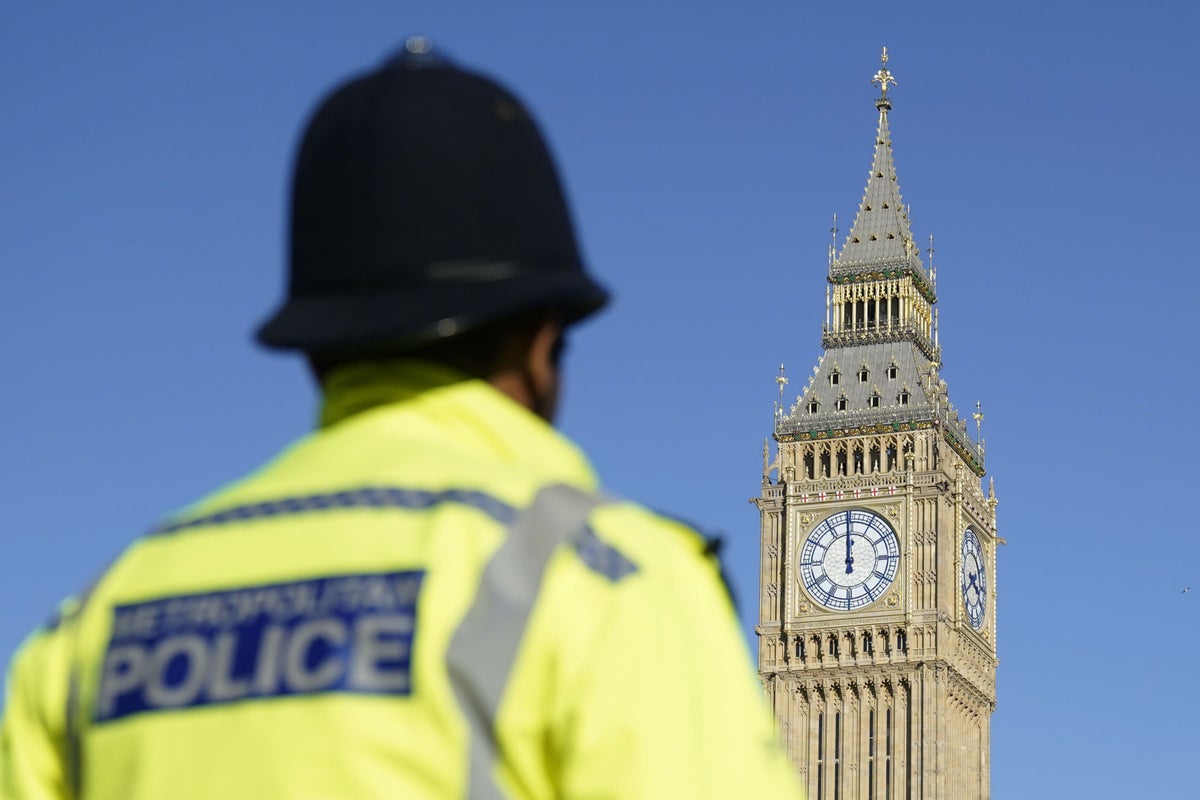
The Government risks further damaging relations between the police and public through its plans to allow the use of stop and search powers without suspicion to curb disruptive protests, ministers have heard.
MPs arguing against the changes cited Baroness Casey’s damning review of the Metropolitan Police, which among other criticisms said London’s police force needs a “fundamental reset” in how it uses stop and search.
The House of Commons was debating amendments proposed by the House of Lords to the Public Order Bill.
The upper chamber, which had previously attempted to strip out the clause expanding stop and search without suspicion, sought to tighten restrictions around the use of the powers by raising the threshold at which they could be used, reducing the time period for use, and increasing transparency.
Bad policing is not improved by bad law, and that's what I think this is— David Davis
Labour shadow Home Office minister Sarah Jones said: “This Government is introducing suspicionless stop and search for potential protests, an overreach of the law that the police haven’t asked for and which pushes the balance of rights and responsibilities away from the British public.”
She mentioned the “excoriating” Casey review, which “among much else, calls for a fundamental reset in how stop and search is used in London”, and referenced the finding that racial disparities continue in how the powers are used in the capital.
“It’s ironic that the day after this report was published, the Government is trying to pass laws that risk further damaging the relationship between the police and the public by significantly expanding stop and search powers way beyond sensible limits,” she said.
The MP said Labour does not “disagree with some of the struggles” of dealing with protests, but said “there are a series of existing laws that enable the police to do their job”, and argued the use of injunctions could be made easier.
Stop and search is currently deployed by the Met at the cost of legitimacy, trust and, therefore, consent— Casey review
Conservative former Cabinet minister David Davis said the “biggest curtailment of stop and search in modern times” was carried out in 2010, when Theresa May was home secretary.
He said: “The reason she did it, in large part, was the feeling that in the Met… (stop and search powers) were felt by the ethnic minority communities to be targeted on them. It actually made race relations in the capital worse”
Conservative former policing minister and former deputy mayor for policing in London in 2010, Kit Malthouse, said that was “incorrect”, and that at the time the police were dealing with a spike in knife crime, and that the approach taken was “successful” and confidence in the police rose.
But Mr Davis described changes proposed by the Lords as “practical changes”.
“Bad policing is not improved by bad law, and that’s what I think this is,” he said, going on also to cite the findings of the Casey review.
One concluding section of the Casey review said: “There is now generational mistrust of the police among Black Londoners. Stop and search is currently deployed by the Met at the cost of legitimacy, trust and, therefore, consent.”
SNP spokesperson Stuart McDonald said: “Suspicionless stop and search is a counter-productive, disruptive, and indeed dangerous police tactic for a whole host of reasons.
“And yet here we are, the day after Casey, and the Government is still insisting on handing out a ludicrously broad and totally disproportionate power to do just that.”
Home Office minister Chris Philp said: “Stop and search is a vital tool that’s used to crack down on crime and protect communities.
“And we see it as appropriate in the face of large, fast-paced environments, where it can be difficult for the police to reach the level of suspicion required for a suspicion-led stop and search, for them to have this power available as well.”
He added: “Baroness Casey in her report referred to some academic research from the United States which she said found… that the use of stop and search on average led to a 13% reduction in crime. So I do think it’s important, for the sake of balance, to keep those points in mind.”
The Commons disagreed with the Lords’ amendments seeking to tighten controls on the use of stop and search without suspicion near to protests by 296 votes to 229, majority 67.
The Bill will now return to the Lords to continue the legislative process, known as parliamentary ping-pong, where the upper chamber will decide whether to attempt further amendments on the issue.







